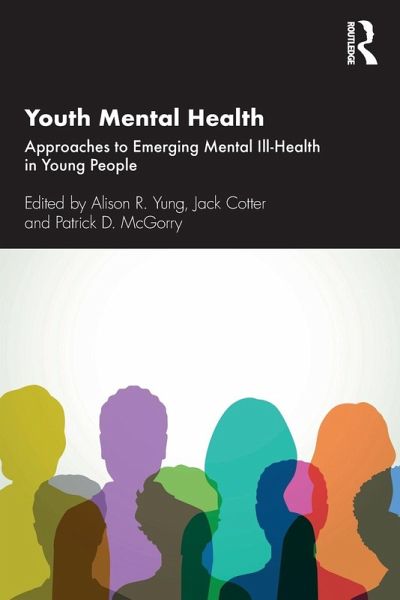
Youth Mental Health
Approaches to Emerging Mental Ill-Health in Young People
Versandkostenfrei!
Versandfertig in 6-10 Tagen
54,99 €
inkl. MwSt.
Weitere Ausgaben:

PAYBACK Punkte
27 °P sammeln!
This book highlights the field of youth mental health and why it is a specialty distinct from both child and adolescent and adult mental health.Youth Mental Health: Approaches to Emerging Mental Ill-Health in Young People examines issues such as mental health literacy, e-Health, family, psychological, vocational and pharmacological interventions. The authors also discuss issues that are particularly pertinent to young people, such as suicidality, substance abuse, gender identity and sexuality, attention deficit disorder and eating disorders. Taking a preventative focus, this book presents evid...
This book highlights the field of youth mental health and why it is a specialty distinct from both child and adolescent and adult mental health.
Youth Mental Health: Approaches to Emerging Mental Ill-Health in Young People examines issues such as mental health literacy, e-Health, family, psychological, vocational and pharmacological interventions. The authors also discuss issues that are particularly pertinent to young people, such as suicidality, substance abuse, gender identity and sexuality, attention deficit disorder and eating disorders. Taking a preventative focus, this book presents evidence for youth mental health as an important and growing field, makes the case for the reform of existing service structures to better serve this group and outlines the latest specialised approaches to treatment.
Drawing on the knowledge and expertise of leading thinkers in youth mental health, this book is instrumental for mental health professionals who wish to design new specialised mental health systems for young people.
Youth Mental Health: Approaches to Emerging Mental Ill-Health in Young People examines issues such as mental health literacy, e-Health, family, psychological, vocational and pharmacological interventions. The authors also discuss issues that are particularly pertinent to young people, such as suicidality, substance abuse, gender identity and sexuality, attention deficit disorder and eating disorders. Taking a preventative focus, this book presents evidence for youth mental health as an important and growing field, makes the case for the reform of existing service structures to better serve this group and outlines the latest specialised approaches to treatment.
Drawing on the knowledge and expertise of leading thinkers in youth mental health, this book is instrumental for mental health professionals who wish to design new specialised mental health systems for young people.














